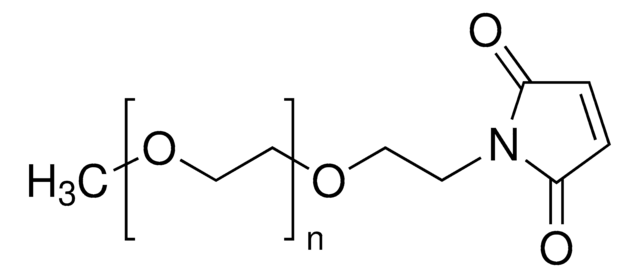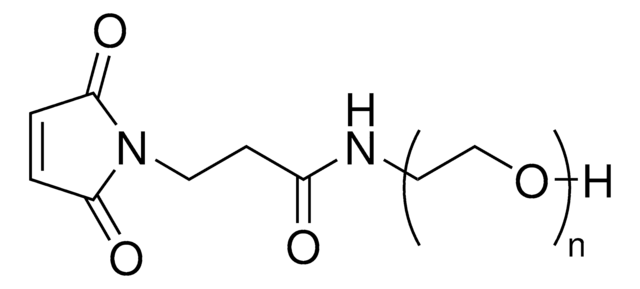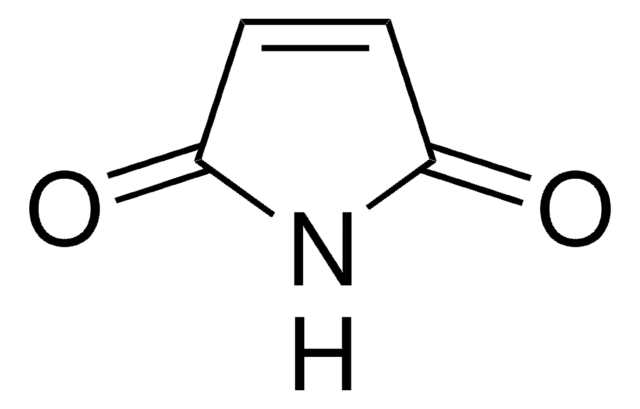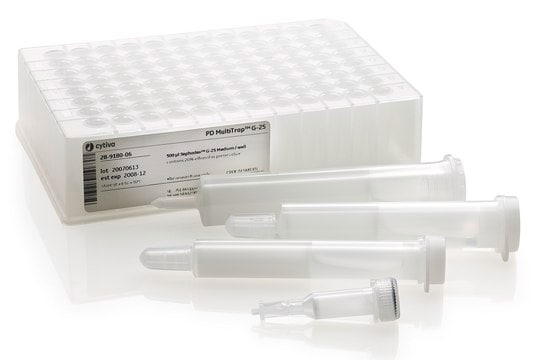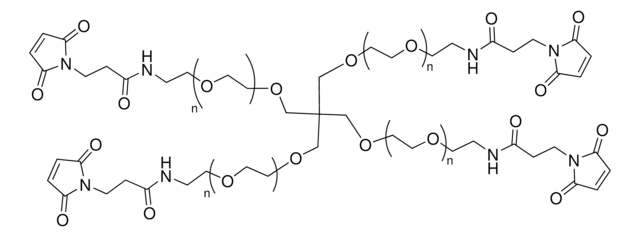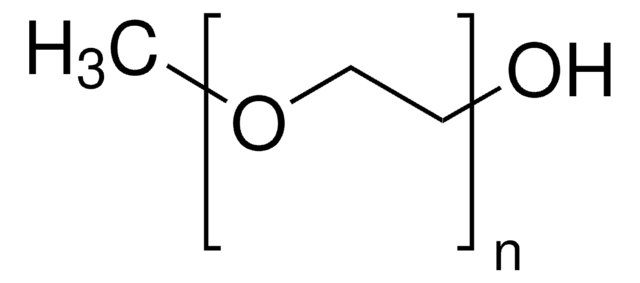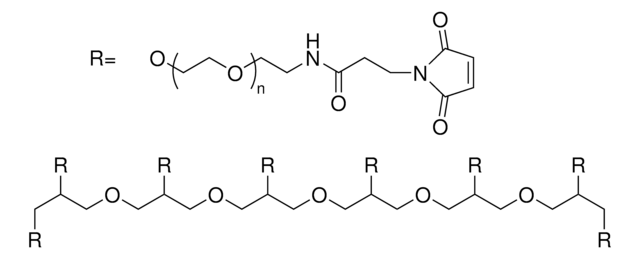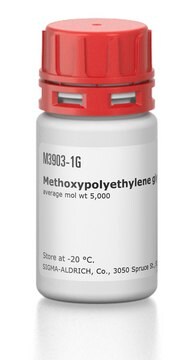63187
Methoxypolyethylene glycol maleimide
≥90% (NMR), 5,000
Synonym(s):
Polyethylene glycol, MeO-PEG-Mal, PEG-maleimide, mono-Methyl polyethylene glycol 2-maleimidoethyl ether
Sign Into View Organizational & Contract Pricing
All Photos(1)
About This Item
CAS Number:
MDL number:
UNSPSC Code:
12162002
PubChem Substance ID:
NACRES:
NA.25
Recommended Products
Quality Level
Assay
≥90% (NMR)
mol wt
PEG average Mn 5,000
Ω-end
maleimide
α-end
methoxy
storage temp.
−20°C
Looking for similar products? Visit Product Comparison Guide
Application
Methoxypolyethylene glycol maleimide (MeO-PEG-Mal) is used as a protein pegylation reagent. PEGylation is the process of covalently attaching polyethylene glycol (PEG) polymer chains to other molecule such as proteins.
related product
Product No.
Description
Pricing
Storage Class Code
11 - Combustible Solids
WGK
WGK 3
Flash Point(F)
Not applicable
Flash Point(C)
Not applicable
Personal Protective Equipment
dust mask type N95 (US), Eyeshields, Gloves
Choose from one of the most recent versions:
Already Own This Product?
Find documentation for the products that you have recently purchased in the Document Library.
Customers Also Viewed
Jiankun Qie et al.
Drug metabolism letters, 1(3), 232-240 (2007-08-01)
Site-specific mono-PEGylations were performed in different conformational regions of Thymosin alpha 1 (T alpha 1) by introducing one cysteine residue into the chosen site and coupling with thiol-specific mPEG-MAL reagent. Results demonstrated that PEGylated sites and regions influenced the conformations
R J Goodson et al.
Bio/technology (Nature Publishing Company), 8(4), 343-346 (1990-04-01)
We have modified recombinant interleukin-2 (rIL-2) to facilitate site-directed covalent attachment of monomethoxy polyethylene glycol (PEG). The site chosen for modification and subsequent covalent attachment with PEG (PEGylation) was the single glycosylation position found in the native interleukin-2 (IL-2). The
K Ananda et al.
Analytical biochemistry, 374(2), 231-242 (2007-12-27)
The design of the extension arm-facilitated PEGylation (EAFP) of proteins takes advantage of the high selective and quantitative aspects of the thiol-maleimide reaction. However, the efficiency of EAFP with hemoglobin varied with the batches of maleimide-PEG. The low level of
Lidia Wrobel et al.
Scientific reports, 6, 27484-27484 (2016-06-07)
Disulfide bond formation is crucial for the biogenesis and structure of many proteins that are localized in the intermembrane space of mitochondria. The importance of disulfide bond formation within mitochondrial proteins was extended beyond soluble intermembrane space proteins. Tim22, a
Leah C Ray et al.
Nature chemical biology, 14(6), 538-541 (2018-05-18)
Polyprenol phosphate phosphoglycosyl transferases (PGTs) catalyze the first membrane-committed step in assembly of essential glycoconjugates. Currently there is no structure-function information to describe how monotopic PGTs coordinate the reaction between membrane-embedded and soluble substrates. We describe the structure and mode
Our team of scientists has experience in all areas of research including Life Science, Material Science, Chemical Synthesis, Chromatography, Analytical and many others.
Contact Technical Service